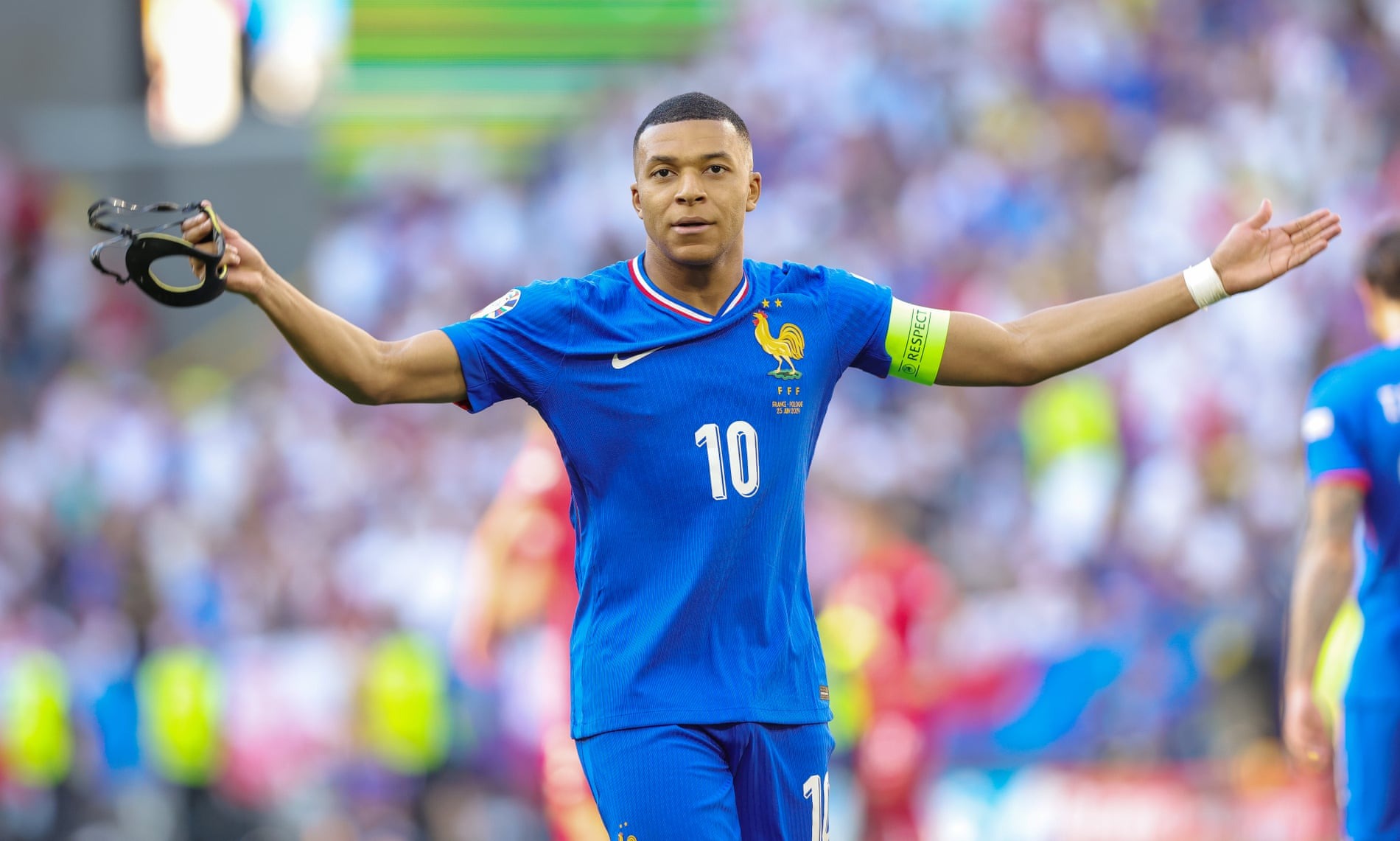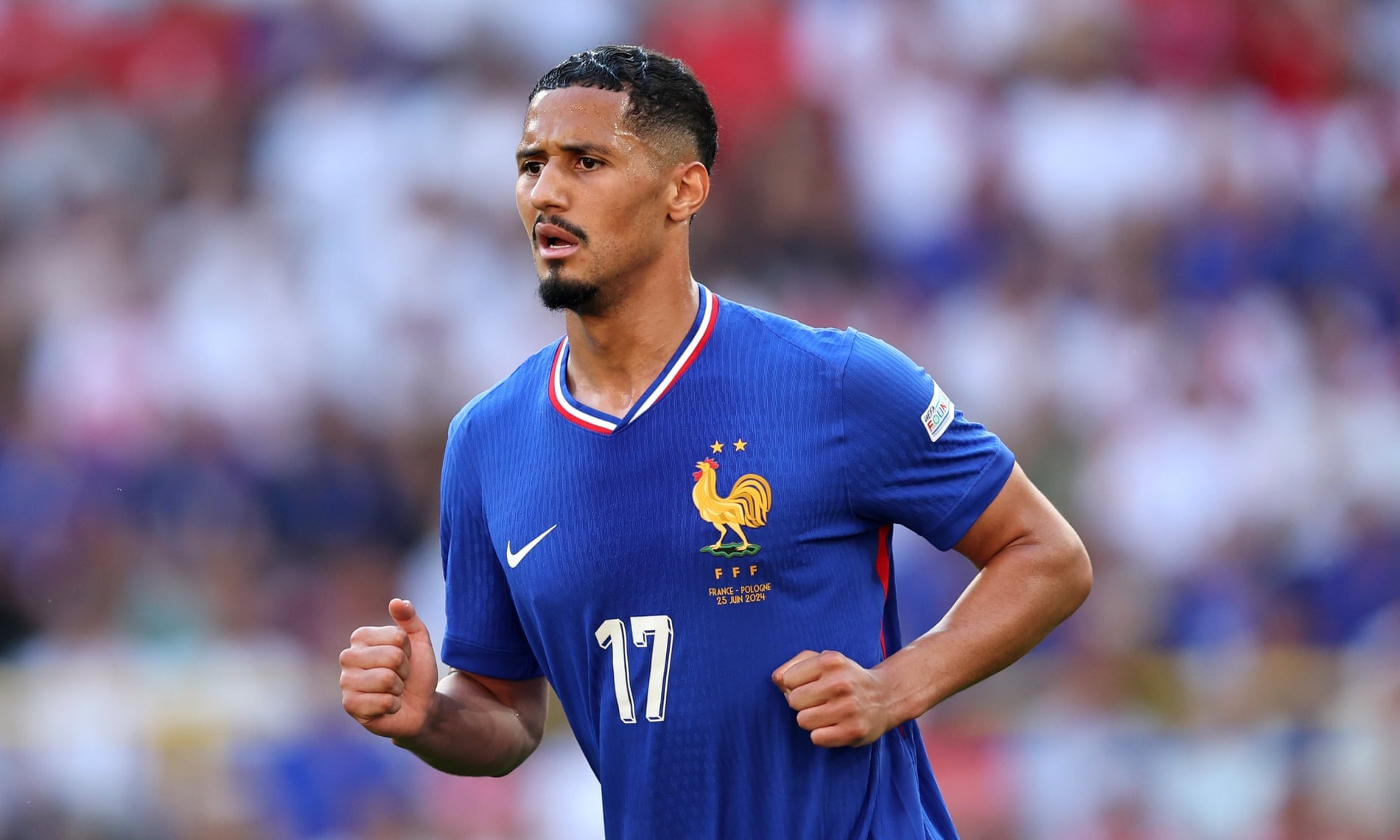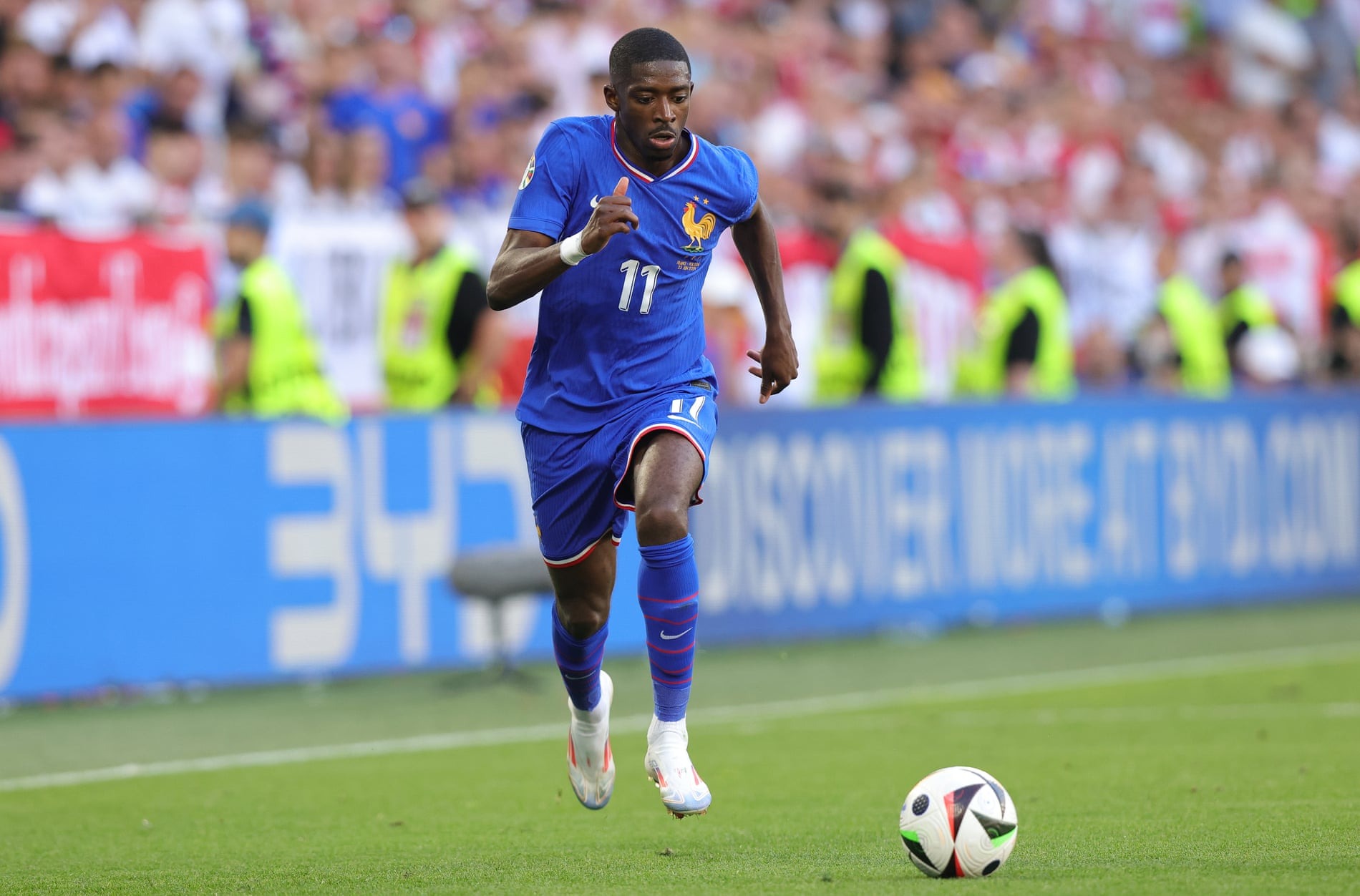France only scored two goals in their three group matches – a penalty against Poland and an own goal against Austria

Kylian Mbappé looks sharp but other goalscorers need to step up. Photograph: Ralf Ibing/firo sportphoto/Getty Images
France showed more signs of life in their 1-1 draw with Poland, in no small part due to the return of Kylian Mbappé. The captain played the full match and coolly slotted home a penalty but the team has not lived up to its billing as near-unanimous pre-tournament favourites. There were bright spots in Dortmund and they are through to the last-16, but there are as many questions as answers for France after they drew two of their three group games and only scored two goals – a penalty and an own goal.
Kylian Mbappé: the difference maker
Cristiano Ronaldo and Lionel Messi have come to personify their national teams over the last decade. It seems that Mbappé is now on that level, at least when it comes to France’s attack. That’s not to deride the quality of the players around him or their performances against Poland – no one was a true disappointment – but the captain, back after he suffered a broken nose against Austria, was the only player who looked like scoring.
Direct and eager to involve his teammates, Mbappé played like a coiled spring, and could do little about the fine performance delivered by Poland’s goalkeeper, Lukasz Skorupski. He looked as sharp as he has in weeks, if not months, something that will come as a relief to manager Didier Deschamps. That said, his performance also underlined the paucity of attacking menace elsewhere, especially given the relatively conservative options in midfield.
William Saliba: faith repaid
Despite a pair of sterling seasons with Arsenal in the Premier League (and an excellent campaign in Marseille before that), William Saliba has not been a consistent pick for Deschamps. Part of that was down to the presence of Raphäel Varane, to whom Saliba has often been compared. They are both good passers of the ball and superb in the tackle, as well as being right-footed defenders who have often played on the left side of a two-man central defence.
Just as Varane consistently repaid Deschamps’ faith in him, Saliba has done the same at this tournament, putting nary a foot wrong across his side’s three matches. Despite France’s lack of cohesion in attack, it’s also important to emphasise that this team has not conceded from open play since March. They are walking a tightrope, but, with Saliba in the defence, they look a far cry from the side that conceded seven goals in four matches in the last edition of this tournament.

William Saliba has stepped up for France at Euro 2024. Photograph: Matt McNulty/UEFA/Getty Images
Bradley Barcola: green shoots
Just 18 months ago Bradley Barcola was a promising yet untested Lyon player. With just a single Ligue 1 assist to his name at that point, he was generally kept out of the team by Karl Toko Ekambi. The next six months in Lyon were the stuff of legend, though. Barcola racked up five goals and nine assists in just 16 starts, earning him a big-money move to Paris Saint-Germain.
He has produced more of the same in the capital, chipping in with four goals and seven assists in 2024, mostly playing off the left. Despite being an obvious option to give the team some attacking spark, he was kept on the bench in France’s first two matches, even when Mbappé was not an option against the Netherlands. Handed his first international start against Poland, the 21-year-old impressed, and his involvement nearly led to Mbappé finding the net from open play on two occasions. Combining livewire energy and unpredictability with a willingness to get stuck in, Barcola showed he belongs in the team no matter the opponent.
Ousmane Dembélé: a rethink needed?
Is the same still true of Ousmane Dembélé? A regular for Deschamps since 2018, Dembélé did well to earn the penalty and looked sharper than in the Netherlands game but he seemed unfocused, especially in the first half, and continues to flatter to deceive. In a tournament where France’s tactics have been compared to their approach when they won the World Cup in 2018, with Adrien Rabiot playing Blaise Matuidi’s hybrid winger role, could Deschamps start Giroud and shift Mbappé to the right in a further reversion to six years ago?
The Milan striker is not getting any younger, but it could be an option should France need a goal. It’s also worth noting that Dembélé played just two minutes in the knockout stages at that World Cup in Russia, with Griezmann playing off Giroud centrally. That’s probably too radical a shift at this juncture but, if Kingsley Coman is fit by the time the round of 16 rolls around, he might be a better option than Dembélé.

Ousmane Dembélé remains a frustrating figure in the France team. Photograph: Ralf Ibing/firo sportphoto/Getty Images
Théo Hernandez: a mature display
Théo Hernandez has long been perceived as something of a liability defensively, but it’s important to remember that he started in both of the last two World Cup finals, and has eight assists in his 30 international caps. He might have had two more last night, the first looking for Mbappé at the back post and the second on a teasing cross just before half-time.
Having lost nothing going forward, Hernandez has become increasingly solid defensively too and he covered well for the inexperienced Barcola against Poland. He is the most experienced defender in this team and his composed displays have been key for his country, especially with some of those around him still getting to grips with tournament football.
Didier Deschamps: caution in extremis
With Poland already eliminated and France in need of a better result than the Netherlands to secure top spot, Deschamps, as he often does, overdosed on caution. Despite having Mbappé fit again, the manager kept faith with his lopsided 4-3-3, surprisingly dropping Antoine Griezmann and again lining up a rather conservative midfield three, eschewing more progressive players such as Youssouf Fofana and Warren Zaïre-Emery.
When he did make a change in midfield, he took off N’Golo Kanté, who has been France’s best player in this tournament. Bringing on Griezmann was theoretically an attack-minded change, but it only destabilised the team, especially with Aurélien Tchouaméni still playing his way back into fitness and Rabiot enduring an off night. Poland never came close to winning the match, and Dayot Upamecano conceding a penalty was an individual error, but Deschamps badly needs to find a more progressive system, as Mbappé alone won’t be enough to win this tournament.
